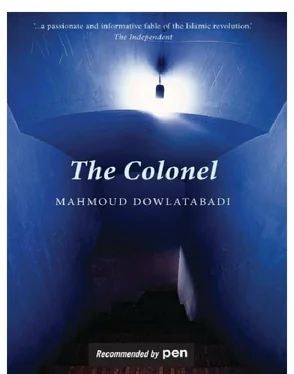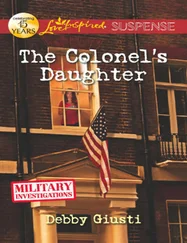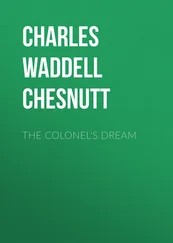And neither did he.

“Amir… Amir… Amir… what are you up to? Are you going to come with me to your brother’s funeral or not…”
“No, no! I am a brother to nobody and a son to no-one. I am nobody and I don’t know anybody, anybody at all!”
Maybe the boy is right. It’s not easy; dying peacefully is no easy matter. Now I’m over sixty, I’ve realised people don’t know how lucky they are to have a quiet and peaceful death. One gets fed up with the headache of dying; the weariness of it sticks to one like a layer of grime. Just thinking about it infects one with a clammy feeling of lethargy. It even makes one feel ill. Even my most unsympathetic listeners know that I don’t normally bang on about death. It’s simply that here I am, drenched and rotting away under this never ending morbid rain. If I have a fault, it is just that I am trying to give a simple, unbiased account of dying. I feel that the last trace of my own human vigour is this rather inadequate account of dying. It is the only thing I can do; I’m not banging on about dying, not at all. What else can I do? Didn’t I want to spend the rest of my life sitting on my verandah in a beautiful sunset, with a bubbling samovar, the charcoal set alight by the wife sitting beside me — my companion through all the ups and downs of my life — as I work my way through a glass of vodka with a bowl of yogurt and cucumber, and I’m playing a gentle mahur on the setar on my knee, safe in the knowledge that my children are all doing well in good jobs in different parts of the country?
Oh yes, I did want that, and I believed I deserved it. It was not an unreasonable expectation, after all. But now there is a thick layer of greasy brown dust on my setar, the dust of death. As for the other broken old bits and pieces lying around my house, I don’t even know what they are now. The paraffin in the heater has run out and my clothes never get dry in this damp; I’m like a stiff, rolled up in this dirty, clammy old sheet; I can’t be bothered to go and keep an eye on my daughter’s canary in its cage, and the voices I hear echoing from every brick and every door in every street just add to the sum total of my misery, and this deathly rain never stops and it never will stop.
So, there’s nothing to do but wait for Masoud’s funeral. How can I think about anything else, or look at anything else, while death surrounds me on all sides and I feel as if I have been swallowed up to my chest in a swamp? I know the answer. There will come a time when my lips and eyes will close in the face of death, and at that point I won’t talk be able to talk about death or see it any more. That will be when death will rise up from my heart and finally take me by the throat. That time can’t be far off now. But… why aren’t these bloody clothes dry yet? I’ve got a funeral to go to, haven’t I?
“Amir… Amir… I need your help, son…”
“No, no, no!”
The gate. There’s someone at the gate. Thinking that Qorbani has come to fetch him, the colonel goes up to the window, but as Amir opens the gate, he sees that it is not Qorbani but the two young men who had helped him bury Parvaneh. Abdullah Kolahi and Ali Seif are standing by the door, looking Amir up and down. Amir does not know what to do, and is cowering in the door of the outside privy. Under the colonel’s watchful eye, Abdullah walks up to the verandah steps. The colonel loses sight of him for a moment, then he sees him coming into the room.
The colonel is standing by the window and is clutching the sheet round his body. Abdullah offers a humble greeting and the colonel turns round to respond. Abdullah waits for a moment by the door with his head bowed and politely asks permission to come in. When it is given, he approaches the table timidly and respectfully, takes a small packet of sugar plums from under his parka and puts it on the table. Then he puts his hand into the pocket of his leopard camouflage trousers and pulls out a few banknotes and lays them on top of the packet of sugar plums. 47He stands there perfectly politely, with his hands folded deferentially over his privates. Silent under the colonel’s stare, he studies his toecaps until, his hands trembling with reverence, he breaks into speech:
“Allow me to be your humble servant, colonel. I am your servant… what am I to do? They told me to say this. But… I swear to you, I treated your daughter as a sister… But even so… I’m so ashamed, colonel, that I’ve decided go and join Masoud at the front in the next draft of reinforcements. To be honest, I don’t intend to come back. I’ve told my wife. I’ve come to ask for your blessing. Give me your blessing, colonel.”
Abdullah disappeared, vanishing in a cloud of black smoke that washed over the colonel’s eyes. His head felt as heavy as a millstone and his heart felt as if it had been uprooted and was crashing around inside his ribcage like a demented canary. When he came to, he found himself gripping the back of the chair. The old sheet had slipped off and was lying on the floor in a heap, and he was standing there, stark naked and shivering like a dog. His mind was a blank. But he could still feel, and he felt cold. He picked up the sheet under his feet and wrapped it round him, but did not know what to do next. The canary was huddled in its cage. All I thought was that it was just a canary that had stopped singing.
Wondering whether canaries liked sugar plums, he took one out of the packet, walked down the passage, stood in front of the cage, pushed it through the bars of the cage and offered it to the canary. But the canary did not move, or even look up. the colonel looked at the rain and decided not to let the canary out. Even if it hadn’t been raining, letting the canary free would have been to pass a death sentence on it. It’s not used to life outside its cage. One flap of its wings and it’s on the floor, and the first cat… That black cat skulking round the pond would go for it.
Mind you, if it hadn’t been raining, I probably would have let it go. After all, since it’ll just pine away and die in its cage after we’re all gone, I might as well let it die free, outside its cage.
But Parvaneh’s canary was already pining away, wasn’t it?
He did not know, nor did he know how long he had been standing there by the cage, silently studying the bird. He walked out on to the edge of the verandah and stood there, on his usual spot, looking out at the rain. The courtyard gate was half-open, and there was no sign of the pick and shovel.
I do hope Amir hasn’t gone out and taken them with him.
There was no certainty about anything. the colonel felt a terrible pang of loneliness. There was nothing but the rain, drumming on the rusty old tin roof. the colonel could not recall that once, at least once a long time ago, he had seen the ochre colour of the roof in the sunset after a rainstorm. His mind was a blank. Was it sunset, or wasn’t it? It was night, or wasn’t it? What time of day was it, anyway?
What is it? Qorbani must be along soon to take me to the cemetery. And my clothes are still wet. What shall I do if they come to tell me that they’ve brought Masoud in? But they won’t bring him, they won’t. No, they haven’t brought back my Kuchik now for forty days, forty winters, forty times forty days and forty nights in the wilderness.
Gentlemen of the cloth! You gentlemen who want history not to be written down, to keep history hidden under a heap of shit, I have told you before that I have lost count of the days and of the nights and of the seasons, and it is now forty days, forty times forty days and forty nights that I have been wandering in the rain, and I feel my bones to be damp and hollow and that I have drained myself out… All I can see now are grotesque creatures. Stranger still, those ghosts are coming back to tell me that my sight is fading, because I can’t distinguish my Masoud from anyone else, while I… It’s bizarre, outlandish… I am telling them that this severed head that has been stuck onto a body is not my son’s head. But do they believe it? No, they don’t. It’s just not possible that I should have forgotten what my son looks like. It’s true that a bullet took one eye and half his face off, but what’s left of this face cries out to me that it does not belong to my Masoud. But the body, the body could well be my son’s. Why would I want to tell a lie, and say that this dishevelled head stuck on to Masoud’s body isn’t his? I know my son’s shoulders, his arms and even his hands. Even though one of his arms is missing from the elbow down, I can still identify him. And let’s not mention that his guts are spilling all over the place and one of his knees has been practically severed and… but nobody is listening to me, which is very odd, very odd. Because, every time I try to speak, before I can get more than one word out, the hired mourners start their lamentations and flagellations and drown my voice out. I want to say, ‘Gentlemen, my brothers, my sons… believe me, this severed head does not belong to my Kuchik.’ That is all I want to say, nothing more, but they won’t let me. They are filling the mortuary with the noise of their wailing and howling and their chest-beating. They are forcing me into silence.
Читать дальше













